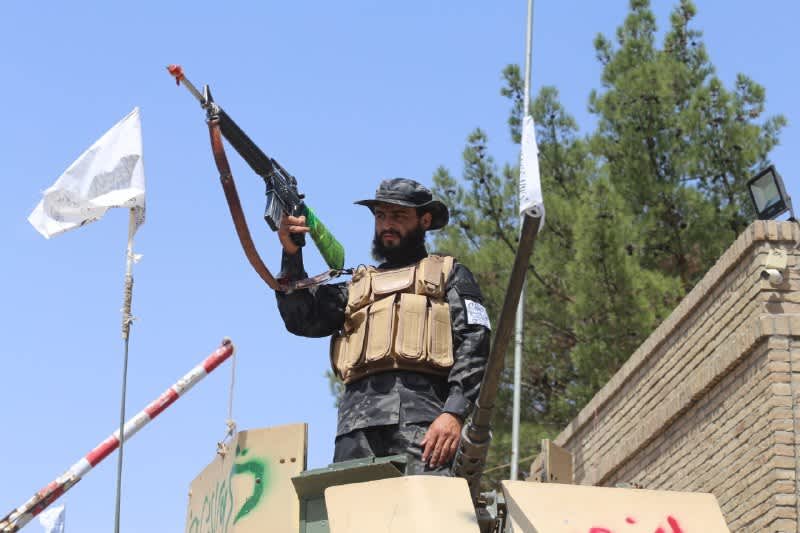
Once again, they will … witness another 9/11.
Khalid Noor
member, member of Afghanistan’s peace negotiating team
“We have said this very clearly — that the international community, if they repeat the same mistake they did in the past, that the war and … terrorism will reach their gates once again, will reach their cities once again,” said Noor, who was part of the Afghan delegation in Qatar that negotiated with the Taliban in July 2019.
“And once again, they will … witness another 9/11,” he told CNBC’s “Capital Connection” on Tuesday. “It is very important at this point, to be very careful on what to do with the Taliban.”
U.S. Secretary of State Antony Blinken said a new diplomatic mission has started in Afghanistan now that the military operations have ended.
“We will remain vigilant in monitoring threats ourselves and will maintain robust counterterrorism capabilities in the region to neutralize those threats if necessary — as we demonstrated in the past few days by striking ISIS facilitators and even threats in Afghanistan, and as we do in places around the world where we do not have military forces on the ground,” Blinken said.
Taliban and al-Qaeda
Afghanistan is almost entirely controlled by the Taliban now, and the Islamist militant group “has never cut off their ties with international terrorist groups” such as al-Qaeda, Noor said, pointing to a video that showed a close ally of Osama bin Laden back in Afghanistan.
Bin Laden founded al-Qaeda, the terrorist organization that was behind the Sept. 11 attacks in 2001 when nearly 3,000 people were killed after hijacked airplanes slammed into the World Trade Center and the Pentagon.
Taliban members gather and make speeches in front of Herat governorate after the completion of the U.S. withdrawal from Afghanistan, in Herat, Afghanistan on August 31, 2021.
Mir Ahmad Firooz Mashoof | Anadolu Agency | Getty Images
“That’s just the tip of the iceberg of what will happen in the future,” said Noor, the son of former governor of northern Afghanistan’s Balkh province, Atta Mohammad Noor.
A United Nations report this year reached a similar conclusion — that the Taliban and al-Qaeda “remain closely aligned and show no indication of breaking ties.” The Taliban previously refuted those claims.
“One of the big myths” in the U.S. and in policymaking circles is that the Taliban and al-Qaeda are not embedded with one another, said Thomas Joscelyn, a senior fellow at the Foundation for Defense of Democracies.
My people will stand up. We will all go back to Afghanistan and we will resist the Taliban.
Khalid Noor
“They are as closely allied today as they were in 1990s, perhaps even closer in some ways,” he told CNBC’s “Squawk Box Asia” on Tuesday. “This is very much a victory for al-Qaeda, in addition to the Taliban.”
Afghanistan is a “failed state” and that will soon become the Islamic Emirate of Afghanistan, Joscelyn said, referring to the Taliban’s official name for Afghanistan.
Negotiation vs resistance
Noor, who was part of the former Afghan government’s peace negotiating team, said the group wants to negotiate with the Taliban to form an “inclusive government” — where various ethnicities are represented.
“Obviously I have my doubts on negotiations, but we do not want to force war in the country, that’s why we prepare to negotiate,” he said without elaborating.
He said it’s not about power sharing — but about values, elections, freedom of expression, freedom of media and “many other rights that my people have gained” over the last 20 years.
If the Taliban makes the same mistakes as they did in the past, “I can assure you that resistance will take shape,” he said.
“My people will stand up. We will all go back to Afghanistan and we will resist the Taliban,” he told CNBC from Dubai.




